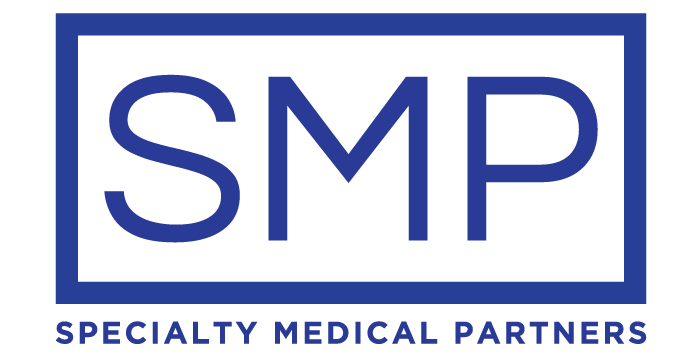Financial Demands Early in Your Career
The start of your independent medical career can be packed with stressful financial decision making. How much should I spend to start practicing? Should I buy a home or continue to rent? Should I be paying off debt or starting to invest?
Statistically speaking, this is you, the average new Canadian medical specialist:
– You are in your early 30s: the largest cohort is age 30-32, with the second largest being 33-351.
– You believe in delayed gratification from a marriage and family point of view. A study from UK found that by the age of 24-25, only 2% of women MDs had a child, vs 41% of the general population2. In Ontario, the median age for first childbirth in women MDs was 32 years old3.
– You are carrying the burden of student loans. Canadian med school graduates average $90K, not including debt from pre-med (average $30K) or residency. About 20% owe >$200K4.
Fresh off paying thousands for licensing exams and perhaps moving cities, you are now a member of bewildering array of mandatory organizations with, of course, mandatory fees. You are now further in the hole before seeing a single patient. For me as a Respirologist in Ontario, I was paying about $8K per year to be a member of OMA, CPSO, CMPA and RCPSC for the privilege to work.
Since you are no longer a resident or fellow, you must buy your own insurance policies. Based on my personal situation, I ended up with disability, medical/dental, life, and critical illness insurance. The types and amounts of policies vary significantly between MDs based on family situation, number of dependents, income, etc. Ultimately, having appropriate insurance coverage will let you sleep at night.
Statistically speaking, this is you, the average new Canadian medical specialist:
– You are in your early 30s: the largest cohort is age 30-32, with the second largest being 33-351.
– You believe in delayed gratification from a marriage and family point of view. A study from UK found that by the age of 24-25, only 2% of women MDs had a child, vs 41% of the general population2. In Ontario, the median age for first childbirth in women MDs was 32 years old3.
– You are carrying the burden of student loans. Canadian med school graduates average $90K, not including debt from pre-med (average $30K) or residency. About 20% owe >$200K4.
Fresh off paying thousands for licensing exams and perhaps moving cities, you are now a member of bewildering array of mandatory organizations with, of course, mandatory fees. You are now further in the hole before seeing a single patient. For me as a Respirologist in Ontario, I was paying about $8K per year to be a member of OMA, CPSO, CMPA and RCPSC for the privilege to work.
Since you are no longer a resident or fellow, you must buy your own insurance policies. Based on my personal situation, I ended up with disability, medical/dental, life, and critical illness insurance. The types and amounts of policies vary significantly between MDs based on family situation, number of dependents, income, etc. Ultimately, having appropriate insurance coverage will let you sleep at night.

Now that you’re more settled professionally, you may want to put down roots, especially if you have a young family. Most Canadians dream of home ownership, which can be challenging since the average house price is now up to $816,7205. For a house priced over $1M, at least 20% has to be put down as a downpayment6. Many early career MDs will follow the common refrain of renting and “living like a resident” until their personal debt is paid down, but there is a risk of ‘fear of missing out’ if real estate prices continue to rise.
I hope you weren’t expecting to find easy answers in this post, and don’t feel overwhelmed with the number of decisions that have to be made. Don’t be afraid to ask for help from mentors, your new peers and professionals: a tax manager/accountant who works with MDs, a lawyer to review employment contracts and leases, an insurance broker, an investment advisor, a banker who is familiar with the medical field. We here at Specialty Medical Partners may be able to help with mentorship part – feel free to contact us.
Author: Dr. Krishna Sharma, Chief Medical Officer, Specialty Medical Partners
Sources
1. Canadian Post-MD Education Registry 2021-2022 Annual Census
2. J R Soc Med 2012 Sep; 105(9):390-99
3. JAMA Intern Med 2021 Jul 1; 181(7):905-12
4. Association of Faculties of Medicine of Canada, National Report 2022
5. Canadian Broadcasting Corporation 2022
6. https://www.canada.ca/en/financial-consumer-agency/services/mortgages/down-payment.html
We hope that you review the opportunities offered on our career page and/or submit your CV for potential employers/partners.
I hope you weren’t expecting to find easy answers in this post, and don’t feel overwhelmed with the number of decisions that have to be made. Don’t be afraid to ask for help from mentors, your new peers and professionals: a tax manager/accountant who works with MDs, a lawyer to review employment contracts and leases, an insurance broker, an investment advisor, a banker who is familiar with the medical field. We here at Specialty Medical Partners may be able to help with mentorship part – feel free to contact us.
Author: Dr. Krishna Sharma, Chief Medical Officer, Specialty Medical Partners
Sources
1. Canadian Post-MD Education Registry 2021-2022 Annual Census
2. J R Soc Med 2012 Sep; 105(9):390-99
3. JAMA Intern Med 2021 Jul 1; 181(7):905-12
4. Association of Faculties of Medicine of Canada, National Report 2022
5. Canadian Broadcasting Corporation 2022
6. https://www.canada.ca/en/financial-consumer-agency/services/mortgages/down-payment.html
We hope that you review the opportunities offered on our career page and/or submit your CV for potential employers/partners.
